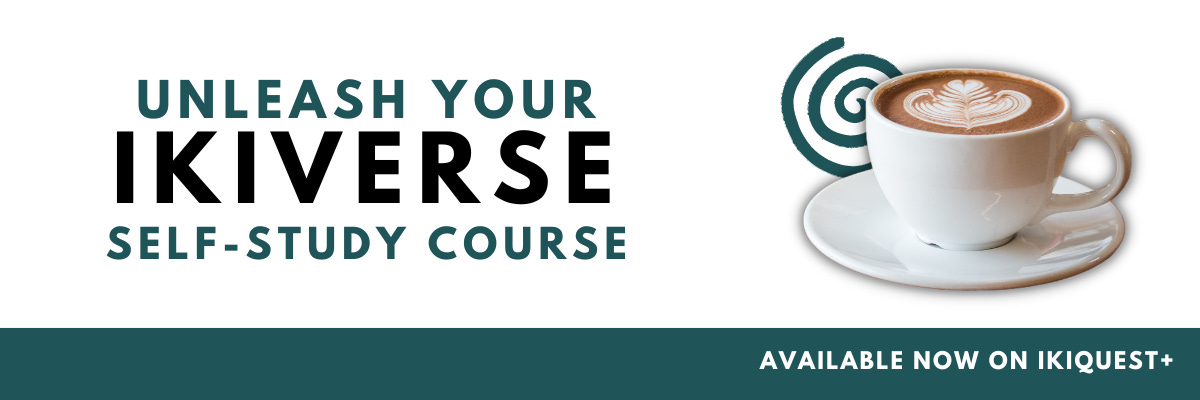Why Autonomy Matters
5 Clear Signs It's Missing in Your Work
While Ikigai is about more than a career, we spend a great deal of time working whether in the corporate world or volunteering in the community.
Today I want to focus on autonomy. A sense of autonomy grants us valuable freedom to live out our lives and purpose.
Today’s post is available as a written article, audio, and video.
Audio narration by David Marlow
Video
Do you ever encounter these situations at work?
Creative and innovative ideas are often dismissed.
Decisions can't be made without seeking approval.
Choices about your work goals are made without your input.
You're often 'on' the job even when you are 'off' work.
Your work isn’t tailored to your strengths and preferences.
The ideals of Autonomy, Mastery, and Purpose are at the forefront of employee engagement and job satisfaction.
These principles, originally championed by Daniel Pink, serve as the keys to unlocking and unleashing our true potential.
Now, let's bring these concepts closer to Ikigai.
Autonomy grants us the valuable freedom to shape our work. It empowers us to align our tasks with our interests and strengths, enabling us to tap into the core of our Ikigai – performing work that resonates with meaning and fulfillment.
Mastery is a crucial building block in our Ikigai journey. By continually enhancing our skills and knowledge, we become better equipped to make a positive impact on the world. This continuous growth is essential for us to refine our strengths and nurture our talents over time.
While Purpose has been diluted as a buzzword in business, its importance remains an intrinsic part of the human experience. It's the driving force that fuels our sense of fulfillment and deepens our connection with our work.
I want to focus on autonomy because by embracing autonomy, we can infuse our daily tasks and projects with our interests and strengths, aligning us more closely with our Ikigai. But what if your job isn't offering the autonomy you need?
Reflection Questions:
📌 Are your tasks or projects at work aligning with your interests and strengths?
📌 What impact do you want to make in the world through your work?
📌 How might your employer empower you with more autonomy to pursue your Ikigai?
Here are some small actionable steps you can take today to have more autonomy:
1. Initiate Dialogue: Start a conversation with your supervisor about gaining more control over certain aspects of your work. Share how this can boost your productivity and job satisfaction. If you know your Ikiverse share that with them.
2. Leverage Your Expertise: Offer your creative solutions and ideas even when they might seem unconventional. Advocate for your unique perspective, showing the value it can bring.
3. Embrace Boundaries: Ensure that you are bringing harmony to all parts of your life. Set clear boundaries to preserve your 'off' time, allowing you to recharge and bring your best self in every aspect of your life.
By integrating autonomy into your daily work life, you'll not only move closer to your Ikigai you’ll also become a driving force in cultivating a more fulfilling and meaningful work environment.
If you're seeking personalized guidance to have more autonomy, mastery, and purpose in your career consider Ikiquest Coaching.
Imagine harnessing this power to live a career filled with purpose, meaning, and joy.
🌀 Can you articulate your Ikigai in a single sentence?
Having an Ikiverse clarifies how to live out your Ikigai.
✅ Being able to state it invites others to support you in your Ikiquest.





I know people who intentionally do not communicate what they are working on because they know others may try to douse out the flames of creativity before it even takes hold.
The question that remains:
Are we doing it out of fear?
Or out of authenticity, because we believe in our vision and purpose, and know others will too once we find the appropriate way to demonstrate it?
"Embracing Boundaries"
I recently had an enlightening discussion with a DBT group on using "limits" instead of "boundaries", specifically because of the Autonomy factor you are highlighting here, David.
Now, for me, limits suggests I know mine, and respect my abilities as far as they will go.
"I am not telling you what to do, I am telling you what *I* can do."
Boundaries are often viewed as a fence we view as s a barrier to keep others out. We may think it's a protection, But ultimately not very healthy.
Really fantastic stuff from you every day!
Autonomy matters David and more so a great boss that is willing to be appreciative of someone coming to them in trust to share concerns. This may be the only chance this person conveys before leaving to find a better way. It is the fork in the road of relationships not only in business but personally with a friend, colleague or someone trying to expand their inner circle. Let this opportunity not slip away when a person can listen, better understand, see some development (individually and as a team) and allow that person the chance to move forward with help from you as much as you can. Ultimately the quest is on the person...we can be guideposts but teaching someone to fish is always better than fishing for them! Empower to Power...we share our light to light others candles...if they light another candle to spread the Good News is great for the greater light...if they chose to light to destroy that is also a choice yet we must evaluate the opportunity if good and share!